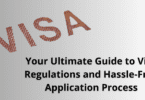Are you considering becoming a Canadian citizen?
Navigating the citizenship process can be complex and overwhelming, especially if you are unfamiliar with the requirements and steps involved .
However, with the right knowledge and guidance, you can make the process smoother and increase your chances of successfully becoming a Canadian citizen.
Canada is known for its inclusive and diverse society, making it an attractive destination for individuals seeking a new home.


Whether you are a permanent resident or looking to immigrate, obtaining Canadian citizenship can provide you with numerous benefits, including the ability to vote, access to social benefits, and a sense of belonging to this great nation.
Becoming a Canadian citizen is a significant milestone in one’s life, but it requires thorough understanding and adherence to the citizenship process.
To help you navigate this journey, we have compiled a comprehensive guide that will walk you through the necessary steps, requirements, and important considerations to keep in mind.
Whether you are just starting your citizenship journey or have already begun the process, this guide will provide you with invaluable information to make your dream of becoming a Canadian citizen a reality.
What is Canadian Citizenship?
Canadian citizenship is the legal status granted to individuals who are born in Canada or meet certain eligibility criteria. It offers numerous benefits such as the right to vote in federal, provincial, and municipal elections, access to social benefits, and the ability to travel with a Canadian passport.
Canadian citizenship can be obtained through different avenues including naturalization for permanent residents, those born to Canadian parents abroad, and individuals who have a deep connection to Canada through their ancestry.
The citizenship process involves meeting certain requirements such as knowledge of the official languages (English or French), proving language skills, passing a citizenship test, and demonstrating an understanding of Canadian history, values, and traditions.
Additionally, applicants must provide supporting documents, pay application fees, and attend a citizenship ceremony where they take the Oath of Citizenship.
Overall, the Canadian citizenship process offers individuals the opportunity to fully participate in Canadian society and enjoy the rights and privileges that come with being a Canadian citizen.
Benefits of Canadian Citizenship
Canadian citizenship offers a range of benefits and advantages to individuals. One of the major perks is the freedom to travel with a Canadian passport to over 180 countries worldwide.
This not only makes international travel more convenient and hassle-free but also provides a sense of security and protection while abroad.
Additionally, Canadian citizens enjoy the right to vote in federal, provincial, and municipal elections, allowing them to have a direct say in shaping their communities and the nation’s future.
Another significant advantage is access to healthcare through Canada’s publicly funded system. Canadian citizens are entitled to essential medical services, ensuring that their healthcare needs are met without the burden of excessive costs.
Additionally, Canadian citizens have the privilege of sponsoring their family members for permanent residency, allowing them to join and live with their loved ones in Canada. Moreover, Canadian citizenship opens up doors to education and job opportunities.
Citizens have access to quality education systems and various government programs aimed at enhancing the learning and professional development of its citizens, providing them with a competitive edge in the job market.
Overall, Canadian citizenship offers numerous benefits and opportunities for individuals to thrive and build a better future.
Eligibility Requirements
To become a Canadian citizen, there are certain eligibility requirements that applicants need to meet. First and foremost, individuals must be at least 18 years old to apply for citizenship. In addition, applicants must have permanent resident status in Canada, which means they hold a valid permanent resident card (PR card) and have resided in Canada for a specific period of time.
The residency requirement typically involves living in Canada for at least 1,095 days or three years within the five-year period prior to submitting the citizenship application.
Furthermore, applicants must demonstrate their knowledge and proficiency in either English or French, Canada’s two official languages. This typically entails passing a language test to prove their language ability.
Lastly, applicants must also pass a citizenship test, which evaluates their knowledge of Canada’s history, government, and overall rights and responsibilities of being a citizen.
By meeting these eligibility requirements, individuals can take the necessary steps towards becoming Canadian citizens and enjoy the benefits that come with it.
Age Requirement
The age requirement for Canadian citizenship is a significant aspect of the citizenship process. To qualify for Canadian citizenship, applicants must be at least 18 years old.
This minimum age ensures that individuals have the necessary maturity and comprehension to make responsible decisions and fulfill their obligations as Canadian citizens.
However, there are exceptions to this rule. In certain situations, individuals under 18 may still be eligible for Canadian citizenship. For instance, those with a Canadian parent or those applying alongside their parent may be exempt from the minimum age criterion.
Additionally, minors who have been adopted by Canadian citizens are also eligible for citizenship, irrespective of their age.
These exceptions acknowledge the unique circumstances of these individuals and provide them with an opportunity to become Canadian citizens, even if they do not meet the standard age requirement.
Permanent Residency Status
Permanent residency status is a crucial requirement when applying for Canadian citizenship. To be eligible for citizenship, applicants must have a valid permanent resident (PR) status in Canada.
It is important for potential applicants to carefully review the documents they receive when they become permanent residents to ensure their eligibility for citizenship.
Certain conditions can affect an individual’s permanent residency status, such as being under review for immigration or fraud, having a removal order, or failing to fulfill specific conditions related to their PR status.
Obtaining permanent residency status in Canada comes with numerous benefits. Permanent residents have the privilege to work and live anywhere in the country, allowing them to explore new career opportunities and settle in their preferred location.
Additionally, permanent residents have access to social benefits, such as healthcare and education, similar to Canadian citizens. It is important for aspiring citizens to understand the requirements and significance of permanent residency status as they progress through the Canadian citizenship application process.

How to Check Your Canada Visa Application Status

Ultimate Guide to Canada Retiree Visa: Application Process, Requirements, and Benefits
Language Proficiency
Language proficiency is an important requirement for Canadian citizenship. Applicants must demonstrate a minimum level of fluency in either English or French, as these are the country’s official languages. The Canadian government employs various methods to assess language skills.
This includes reviewing documents submitted by applicants, evaluating their communication abilities with government officials during the citizenship process, and conducting language assessments if necessary.
These assessments may involve speaking, listening, reading, and writing tests to determine the applicant’s proficiency level. To provide proof of language proficiency, accepted certificates, diplomas, and tests can be submitted.
These include language test results from designated testing agencies, such as the International English Language Testing System (IELTS) or the Canadian English Language Proficiency Index Program (CELPIP).
Certificates or diplomas from recognized language education institutions are also acceptable as proof of language proficiency for Canadian citizenship.
Knowledge of Canada and Its Rights
When applying for Canadian citizenship, having a good understanding of Canada and its rights is of utmost importance. Applicants must be knowledgeable about key aspects such as Canadian history, the government structure, and the rights and responsibilities of citizens.
This knowledge is not only crucial for the citizenship test and interview but also for successful integration into Canadian society.
Acquiring knowledge of Canadian history allows applicants to appreciate the country’s cultural, social, and political roots.
Understanding the government structure, including the roles of the Prime Minister, Governor General, and provincial authorities, enables applicants to actively participate in civic life and engage in democratic processes.
Being familiar with the rights and responsibilities of citizens empowers individuals to exercise their freedoms fully, comprehend their obligations, and actively contribute to the well-being of Canadian society.
During the citizenship test and interview, applicants are assessed on their knowledge of Canada. They are required to demonstrate proficiency in speaking and understanding either English or French, and they must answer questions about Canada’s history, political system, and values.
This process ensures that new citizens possess the necessary knowledge to fully engage in Canadian society and actively contribute to its growth and prosperity.
By demonstrating their knowledge, applicants showcase their commitment to becoming well-informed and engaged Canadian citizens.
Criminal Record Check
As part of the Canadian Citizenship application process, applicants are required to undergo a Criminal Record Check to assess their eligibility. Those who have committed a crime, either within or outside of Canada, may face ineligibility for citizenship for a specific period of time.
To obtain a Criminal Record Check, applicants need to follow certain steps. Firstly, they should gather the necessary documents, including valid identification such as a passport or driver’s license. Next, they need to complete the appropriate application form provided by their local police department or the Royal Canadian Mounted Police (RCMP).
It is important to ensure that all sections of the form are accurately filled out. Once the form is completed, applicants must submit it along with the required fees and any additional supporting documents to the applicable police station or the RCMP.
After a thorough review of the application, the police authority will conduct a background check to confirm the applicant’s criminal record history. The results of the Criminal Record Check will be provided to the applicant, who can then submit it as part of their Canadian Citizenship application.
It is essential for applicants to comply with this requirement to determine their eligibility for citizenship.
Application Forms and Fees
To become a Canadian citizen, you will need to complete the Canadian citizenship application form. This form can be obtained on the official website of the Canadian government or through a citizenship official.
The application form will ask for personal information, such as your name, date of birth, and contact details. It will also require you to provide documents to prove your eligibility for citizenship, such as proof of language proficiency and proof of residency.
Along with the application form, there is an application fee that needs to be paid. The fee covers the processing of your application and is non-refundable, even if your application is not approved. It is important to note that the fee may vary, so it is advisable to check the current fee on the official website.
Additionally, there may be additional fees for specific services, such as the citizenship ceremony. It is recommended to thoroughly review the application form and guidelines to ensure all necessary fees are paid and all required information is included.


Required Documentation for Application Package
When applying for Canadian citizenship, it is important to include the necessary documentation in your application package. This includes a filled-out application form, which is available through the Canadian government.
Additionally, you will need to include notarized and translated copies of your passports to prove your identity and citizenship.
Confirmation of kinship is also required, such as birth certificates or marriage certificates, to establish your familial ties. Police clearance certificates are necessary to demonstrate that you have a clean criminal record.
Furthermore, you must provide confirmation of your financial position, which may include bank statements or proof of employment.
Lastly, it is crucial to include payment receipts, photographs, and proof of investment in the Canadian economy, if applicable.
It is important to note that all foreign-language documents must be translated into English and notarized. This ensures that the Canadian officials reviewing your application can understand and verify the information provided.
By including all the required documentation, you can ensure a smooth and efficient process in obtaining your Canadian citizenship.
How to Submit the Application Form
The process of submitting the Canadian citizenship application form involves several important steps. Firstly, ensure that you have completed all sections of the application form accurately and thoroughly.
Double-check that you have provided all necessary supporting documents, such as birth certificates, police clearance certificates, and proof of financial status.
Once you have filled out the form, it is crucial to sign and date it. Additionally, if you have used the physical presence calculator to determine your eligibility, make sure that the date of your signature on the form matches the date on the calculator printout. This consistency is important for validation purposes.
After completing and signing the application form, you need to carefully package all documents and send them to the correct mailing address. It is essential to submit your application package in a timely manner to avoid any delays.
Make sure to include all required documents, payment receipts, photographs, and any other relevant materials specified in the application instructions. Consider using a trackable mailing option to ensure the package reaches the destination safely.
Remember that timely submission is crucial to avoid any unnecessary delays in the processing of your citizenship application.

In-Demand Skills in Canada: A Comprehensive Guide

What is the Easiest Way to Immigrate to Canada?
Processing Fee and Payment Methods
The processing fee and payment methods for the Canadian citizenship application vary depending on whether the applicant is an adult or a minor. For adult applications, the fees may include the processing fee and the right of citizenship fee.
The processing fee is $530 CAD per applicant, while the right of citizenship fee is $100 CAD. For minor applications, the processing fee is $100 CAD.
Payment for these fees can be made using several methods, including online payment with a credit card, debit card, or pre-paid credit card.
It is important to note that if multiple applications are being submitted together, all fees can be paid together in a single payment transaction.
Additionally, citizenship applicants must have filed their taxes in Canada for at least three years during the five-year period before applying.
This requirement ensures that applicants have fulfilled their income tax obligations to the Canadian government.
Canadian Citizenship Test and Interviews
The Canadian citizenship process includes a test and an interview to assess applicants’ knowledge about the country and their language skills. The test is designed to evaluate an applicant’s understanding of Canada’s history, government, and rights and responsibilities of being a citizen.
It is conducted in either English or French, the country’s official languages. Applicants must also demonstrate their language ability by providing proof of language proficiency.
The citizenship interview is conducted by a citizenship official who reviews the applicant’s application package and asks questions about their background, residency, and eligibility criteria.
The interview is an opportunity for applicants to provide additional information and clarify any discrepancies in their application.
It is important to note that the interview is not a language test, but rather an opportunity for the officer to assess the applicant’s understanding of the citizenship process.
Upon successfully completing the test and interview, applicants are required to attend a citizenship ceremony where they take the oath of citizenship and receive their Canadian citizenship certificate.
This certificate serves as proof of their citizenship status and allows them to apply for a Canadian passport.
It is essential for applicants to understand the requirements for citizenship, complete the necessary application forms, pay the applicable fees, and provide all required documentation to ensure a smooth and efficient process.
The Canadian government provides detailed information on their official website regarding the citizenship process, including eligibility criteria, the application package, processing times, and any updates or changes to the process.
Preparation for the Test
Preparing for the Canadian Citizenship test is an important part of the citizenship process. Applicants are advised to start their preparation well in advance to ensure they have a thorough understanding of Canada’s history, government, and rights and responsibilities of being a citizen.
The preparation process typically involves studying the study guide, “Discover Canada: The Rights and Responsibilities of Citizenship,” which serves as the basis for the test.
The study guide, “Discover Canada,” is a comprehensive resource that provides applicants with the necessary information to prepare for the citizenship test. It covers a wide range of topics including Canadian history, geography, culture, and the political system.
The guide offers detailed explanations and examples, making it easier for applicants to comprehend and retain the information. It is available in multiple formats, including online materials, paper copies, and audio versions, allowing applicants to choose the method that suits their learning style.
These resources provide flexibility and accessibility, ensuring that applicants can study the guide at their own pace and convenience.
By utilizing the study guide and the available resources, applicants can effectively prepare for the Canadian Citizenship test and increase their chances of success.
Scheduling an Interview with a Citizenship Official
Scheduling an interview with a Citizenship Official is an important step in the Canadian citizenship process. After submitting the application and meeting the eligibility requirements, adult applicants will be contacted to schedule an interview or test.
This interview serves the purpose of assessing the applicant’s understanding of various aspects of Canada, including its government, history, geography, industry, and voting procedures. Additionally, the interview will also evaluate the applicant’s proficiency in either English or French, which are the official languages of Canada.
It is crucial for applicants to adequately prepare for the interview by studying these topics and ensuring their language skills are up to par, as this is a key factor in the citizenship assessment process.
In conclusion, the journey to becoming a Canadian citizen may seem daunting, but with this comprehensive guide, you have all the tools and information you need to navigate the process successfully.
Embrace the rich culture, diverse communities, and endless opportunities that Canada has to offer. Remember, becoming a Canadian citizen is not just about obtaining a passport, but about joining a nation that values inclusivity, diversity, and the pursuit of happiness.
So, take that first step towards your Canadian dream and start your citizenship journey today!


